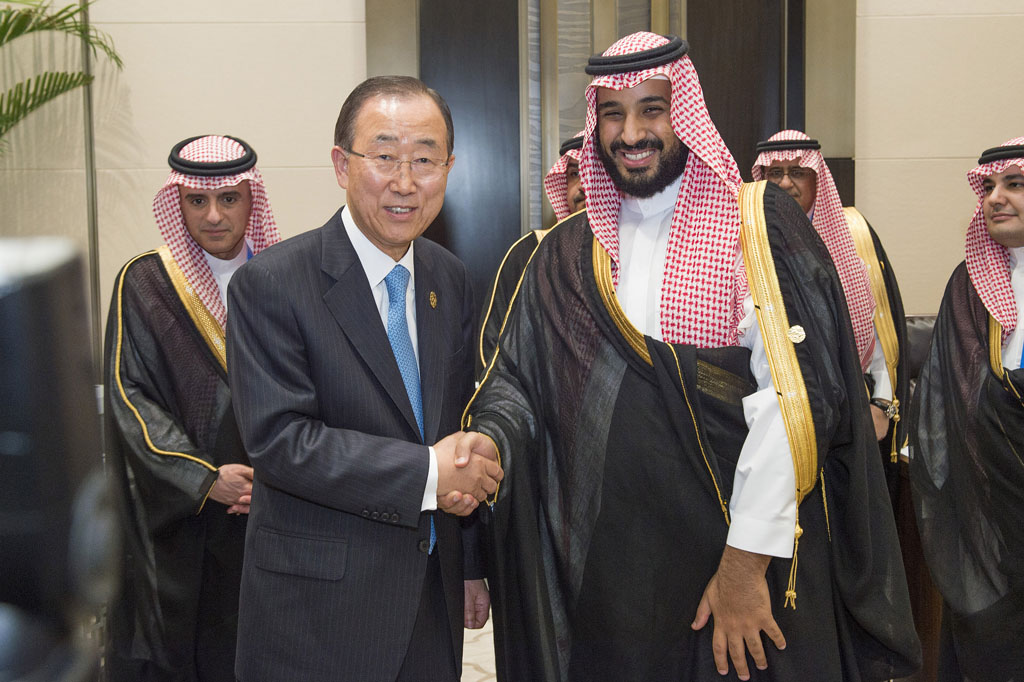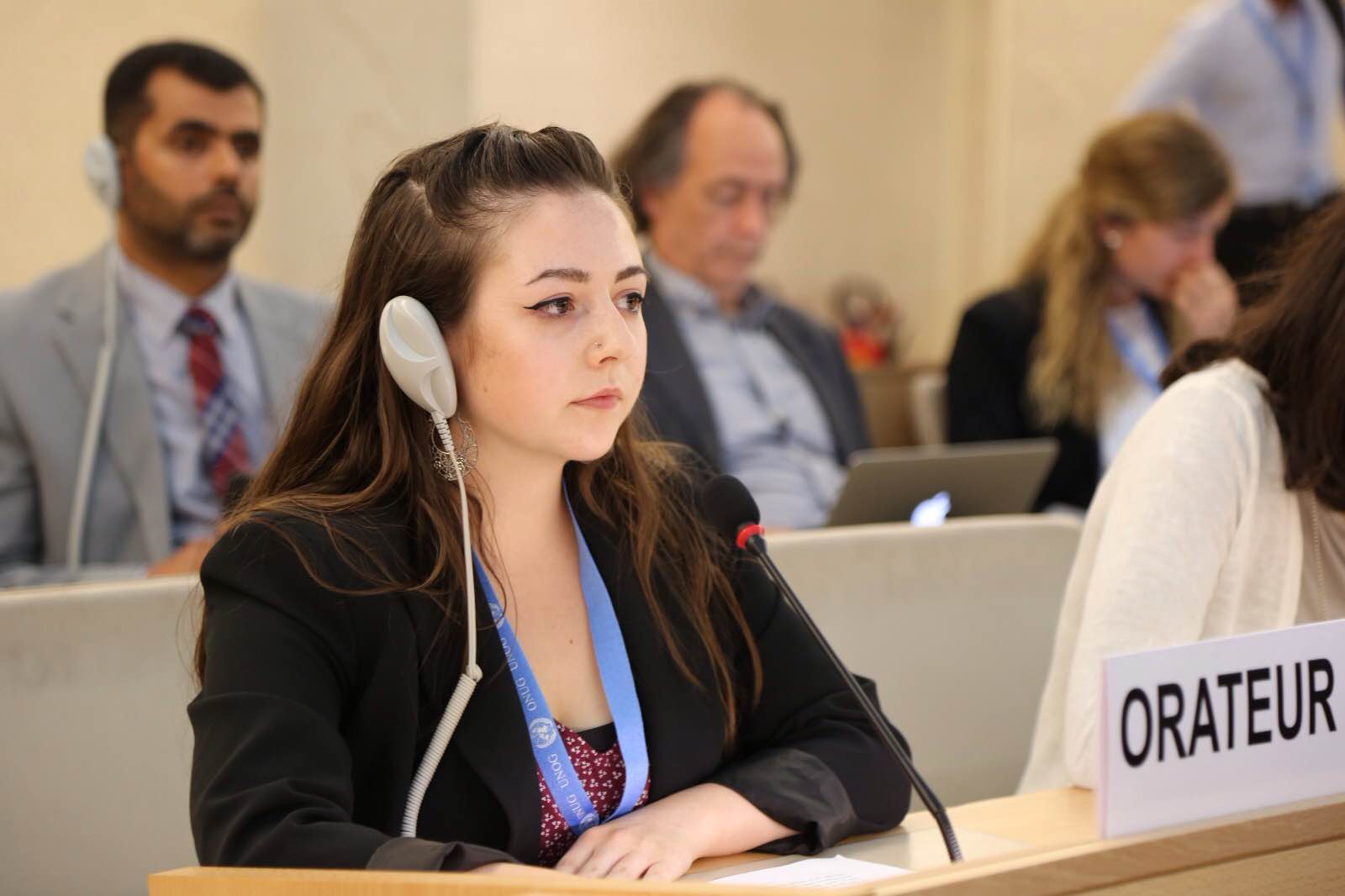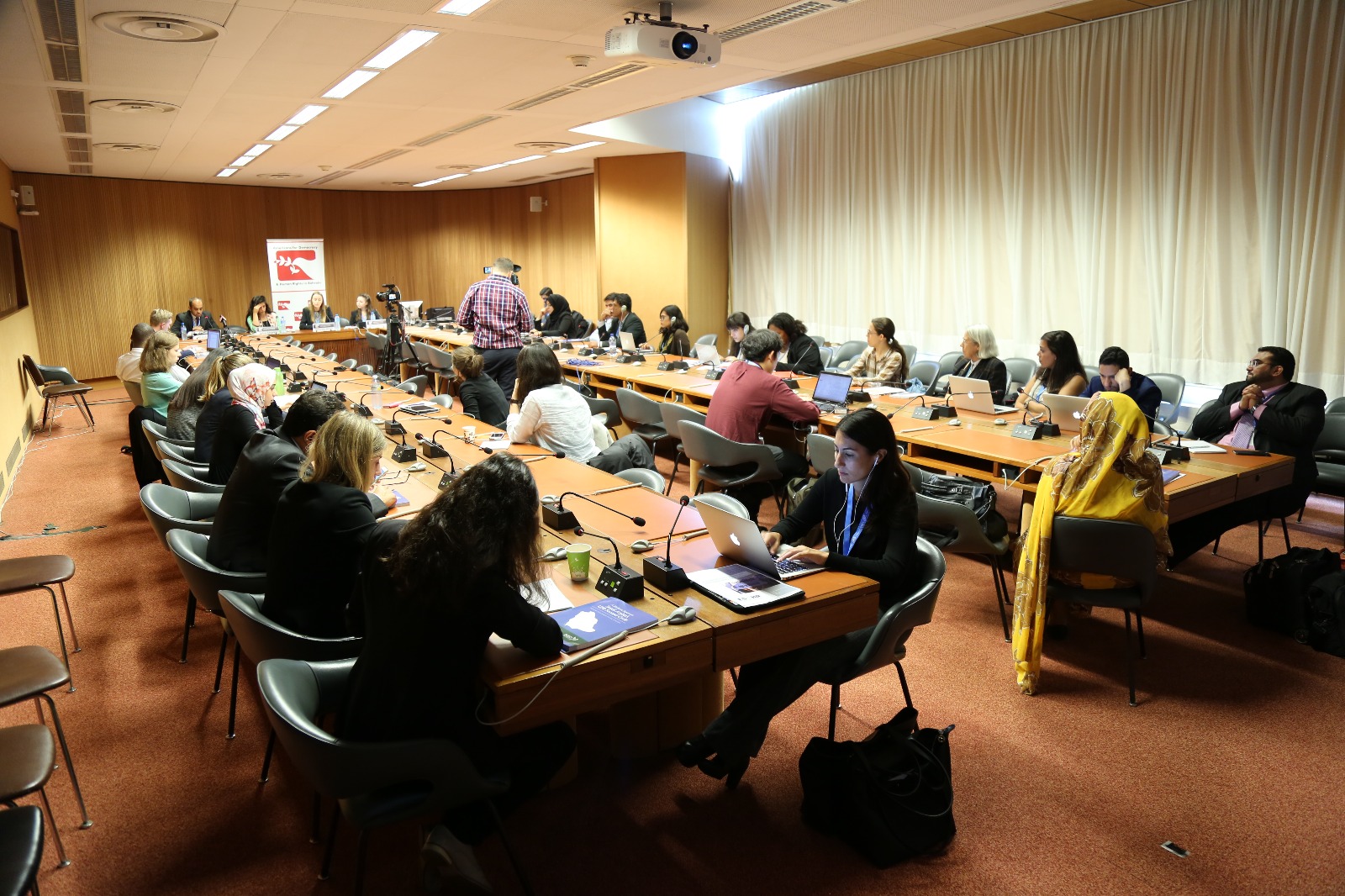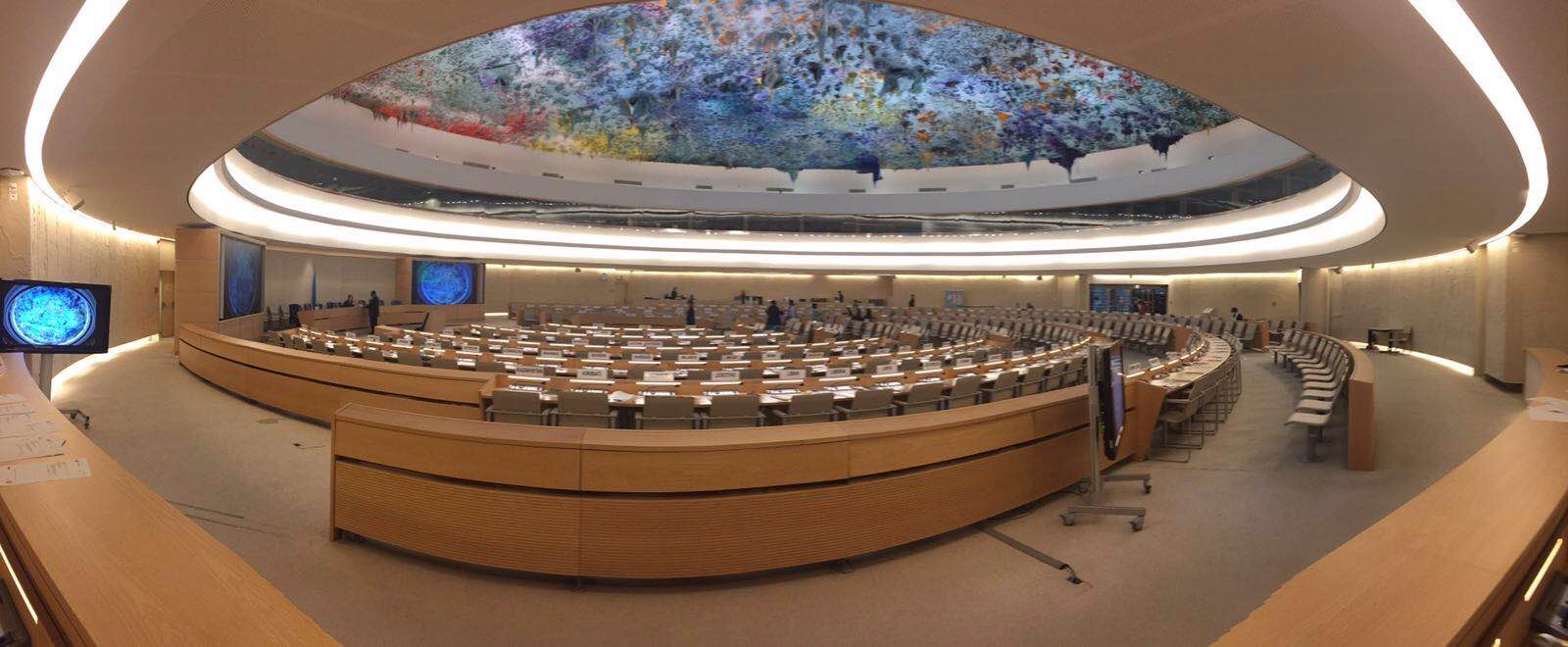Next week, Saudi Arabia will be reviewed by the UN Committee on the Rights of the Child regarding its progress in the implementation of the Convention on the Rights of the Child (CRC). ADHRB submitted its own assessment to the Committee, which highlights a total failure by Saudi Arabia to protect even the most basic[…]
On 15 September 2016, Erin Sigmon, ADHRB’s Advocacy Associate, delivered an oral intervention at the 33rd session of the Human Rights Council under item 3 on the Emirati government’s use of enforced disappearances & issue of debt bondage in Saudi Arabia Please continue reading for full remarks or click here to download a PDF. Esteemed Rapporteurs, Americans[…]
15 September 2016, Geneva, Switzerland – Americans for Democracy & Human Rights in Bahrain (ADHRB) and the Bahrain Institute for Rights & Democracy (BIRD), together with a larger group of NGO sponsors, organized a panel event entitled “Bidoon: The Plight of Stateless Persons in the GCC.” The event was held in parallel to the 33rd Session[…]
On 15 September 2016, ADHRB’s UN Liaison Amanda Milani delivered an oral intervention under item 3 at the 33rd session of the Human Rights Council on women’s limited access to healthcare due to guardianship system in Saudi Arabia. Please continue reading for full remarks or click here to download a PDF. Distinguished Independent Expert Ms. Kornfeld-Matte, Americans[…]
September 8, 2016 Dear Senator, The undersigned organizations are writing on behalf of the millions of Americans we collectively represent, to urge you to reject the planned $1.15 billion foreign military sale to the Kingdom of Saudi Arabia. Moving forward with this sale at this time is not in the security interest of the United[…]








